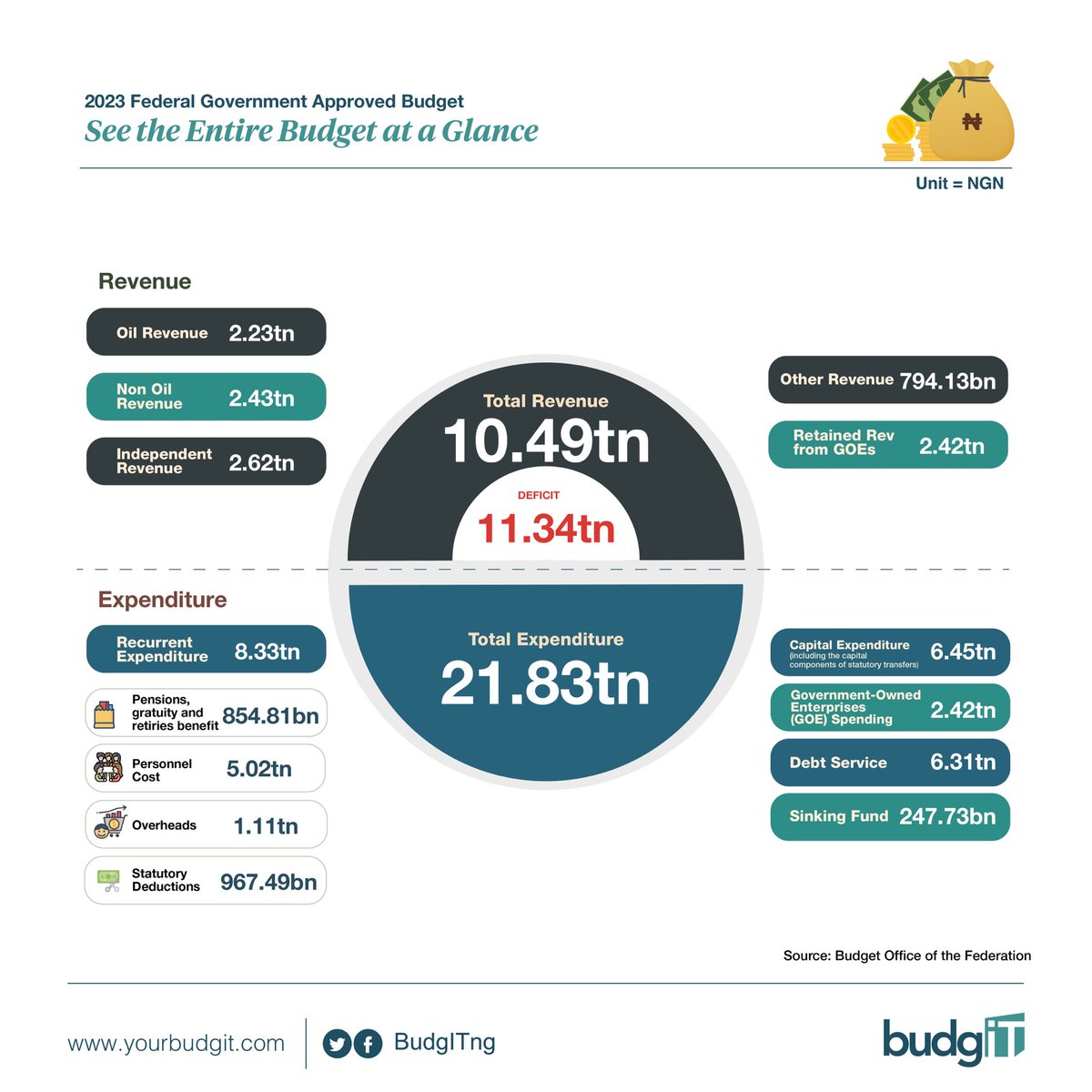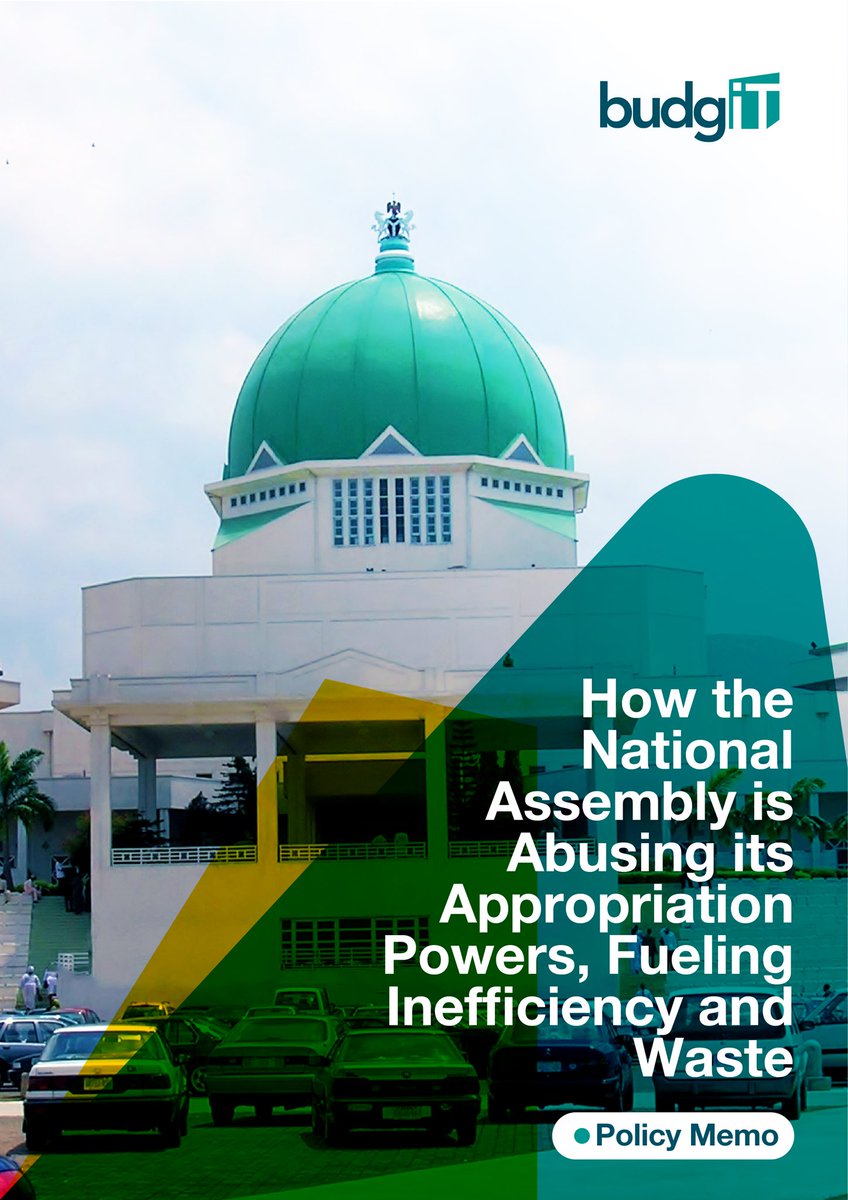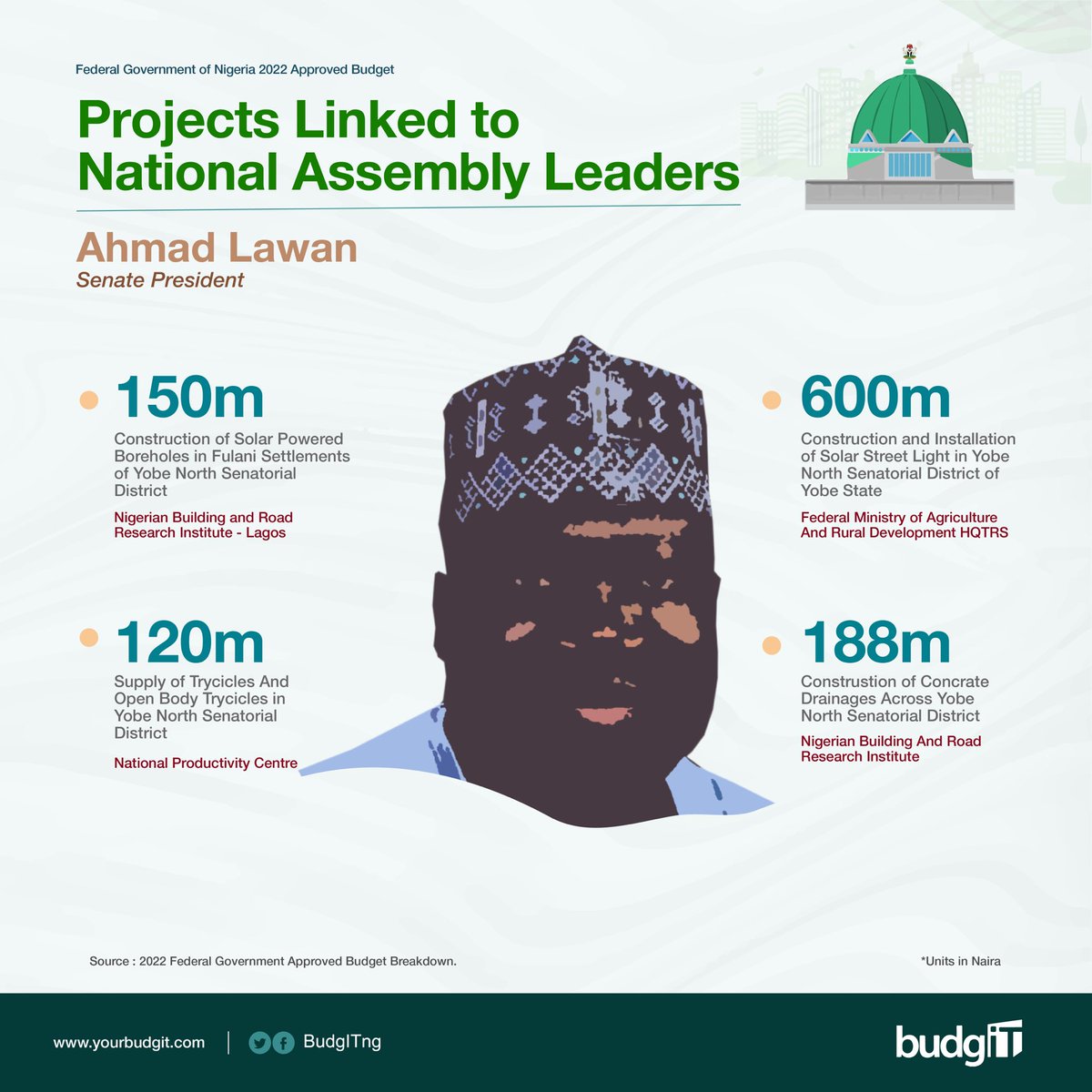📢 FG allocates N81.7bn for STREETLIGHT construction in the 2023 budget, higher than the total amount for schools and PHCs combined.
PRESS STATEMENT
Thread! #AskQuestions



PRESS STATEMENT
Thread! #AskQuestions




A total of N81.7b was allocated to the construction of solar street lights in the 2023 FG Capital and Constituency projects. This is higher than the total allocation to schools and primary health centers, which gulp N77.9b and N3.1b, respectively, in the budget. #AskQuestions. 

The bogus allocation to streetlights is a gross misplacement of priority as Nigeria is also presently littered with non-functional and vandalized streetlights that have stopped working less than two years after their construction. #AskQuestions
Our analysis also discovered that over 687 projects worth N112b were allocated to agencies outside their mandate. The Nigerian Army was allocated N4.5b for the Construction of Dengi-Kwalmiya-Gagdi-Wawus Bauchi Road in Plateau State. #AskQuestions. 

The Nigerian Institute of Oceanography & Marine Research was assigned N1.2b across four projects to supply medical equipment to health centers in Ogun State, & N580m was allocated to National Root Crops Research Institute, Umudike, to construct roads & streetlights in Abia State.
We also discovered a 21% reduction in the percentage of empowerment projects this year compared to last year, where N58b of N100b was allocated to empowerment projects in 2022, while N37b of N100b was allocated to empowerment projects in 2023. #AskQuestions 



In the 2022 budget expenditure, from govspend.ng, we uncovered N10b in payments made to 18 personal accounts for vague services. #AskQuestions 

Amongst them, the Office Of The Special Adviser to the President on Niger Delta directly paid a total of N4b to two personal accounts—N2b to one Dasimaka Adokiye Sami across 12 transactions & N2m to Ebikabowei Victor Ben across 27 transactions.
These payments are a clear violation of section 713 of the Public Sector Financial Regulations, 2009. #AskQuestions
We call on Nigerians to #AskQuestions & probe these anomalies in the 2022 and 2023 budget expenditures.
We call on Nigerians to #AskQuestions & probe these anomalies in the 2022 and 2023 budget expenditures.
Elected representatives should perform oversight functions, & ensure the quality implementation of the projects nominated, so that citizens can derive maximum benefits from public funds. #AskQuestions
Access the 2023 FG Projects Analysis for more: shorturl.at/dAFGQ
Access the 2023 FG Projects Analysis for more: shorturl.at/dAFGQ
• • •
Missing some Tweet in this thread? You can try to
force a refresh

 Read on Twitter
Read on Twitter



























